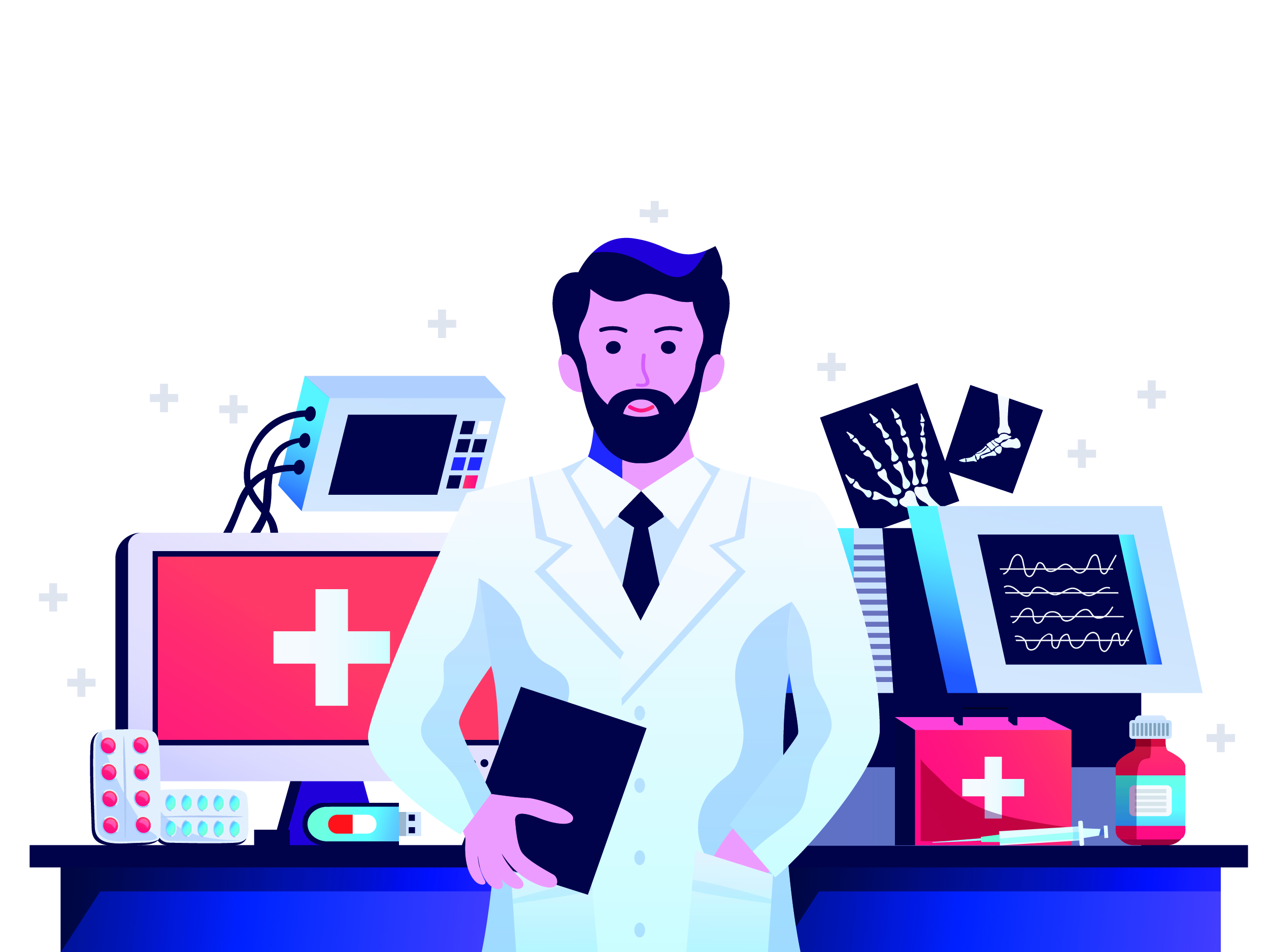Making a ‘healthy’ difference
The healthcare industry extends far beyond the realm of doctors. A multitude of career options as nurses and technicians exist, each playing a crucial part in improving the healthcare system

The healthcare workforce was stretched to its limits during the Covid-19 pandemic, and even if the devastating crisis has subsided, the world is still grappling with a significant shortage of healthcare staff. The World Health Organisation (WHO) projected a shortfall of 10 million health workers by 2030, mostly in low and lower-middle-income countries. Having said so, the Indian healthcare industry has become one of the largest sectors of the nation’s economy, both in terms of revenue and employment.
Now, it’s important to understand that healthcare extends beyond the study of medicine. Within the healthcare industry, there are countless job opportunities available that do not require a medical degree. If you’re interested in helping patients and want to be a part of the healthcare industry, then you can consider a career as a medical technician or nurse.
Healthcare technicians can specialise in different areas, such as radiology, laboratory technology, pharmacy, or patient care. Did you know the Indian Medical Association (IMA) has a certificate course as a phlebotomy technician, which teaches students the concepts of phlebotomy, infection control, healthcare issues, human anatomy, physiology, phlebotomy equipment and tools, phlebotomy procedures and phlebotomy fundamental essentials? From conducting diagnostic tests, operating medical equipment, collecting and processing patient samples, and maintaining accurate records, these healthcare professionals play a crucial role in contributing to the overall delivery of quality patient care and the global economy.
“The allied health technologists or healthcare technicians are involved with the delivery of healthcare or related services, with expertise contributing to therapeutic, diagnostic, curative, preventive, and rehabilitative interventions. People with progressive healthcare conditions like Parkinson, and Alzheimer’s, etc, and patients with restricted mobility due to stroke could be trained to manage their care with the help of physiotherapists, and occupational and speech therapists. Then, there are the nurses, who are the patient’s main point of contact with the health care system, and they also have several concurrent roles in a healthcare setting, each with a variety of associated tasks,” said Dr B Reshmi, associate dean & additional professor, Department of Health Information Management, Manipal Academy of Higher Education.
Reports suggest the national average salary of a flight paramedic in the US is $41,517 per year and a dialysis technician can earn something around $41,092 every year. The average medical laboratory technician in India draws Rs 268,190 per year. Be it an emergency medical technologist, dialysis technologist, nuclear medicine technologist, radiation physicist, anesthetist, physiotherapist, or speech-language pathologist, a wide range of roles are available for healthcare professionals today.
“Today, even the nurses have evolved roles in healthcare administration, quality, academics and research. They provide direct patient care, administer medications, develop care plans, and educate patients. Nurse as admin drives the nursing services, ensure patient safety and quality standards are emphasised, aid in academics and research various subjects. Health technicians, on the other hand, have specialties like medical laboratory technology, radiology, surgical technology, and pharmacy technology. They assist in diagnostics, operate medical equipment, and support healthcare professionals in various procedures,” said Dr Vijay Aggarwal, director, Medical Services, Apollo Health and Lifestyle.
Post-pandemic, there’s an increased demand for respiratory therapists who help diagnose, treat, and support individuals with respiratory disorders. Their expertise in assessing lung function, administering respiratory therapies, and managing life-supporting ventilators is vital in various healthcare settings, including hospitals, long-term care facilities, and home care. Manoj Mishra has always been interested to pursue a career in the healthcare industry but didn’t want to study medicine. He completed a course in MRI technology and today works at a reputed clinic in Kolkata.
According to Dr Lakshmamma Tadakara, principal, GITAM Institute of Nursing, there is also a huge demand for nursing officers across the globe. “As per the Supreme Court order and the Indian Nursing Council amendment, nurses are to be designated with the nursing officer, senior nursing officer, assistant Chief Nursing Officer (ACNO) Chief Nursing Officer (CNO) as per their qualification and promotional rules. From school nursing officers, palliative care specialists, home care nursing officers, data coding in health care, independent nurse practitioners, healthcare managers to hospital administrators, options are galore,” he said.
He further added how home care setup has gained a lot of public attention after the pandemic. “Our nurses have to be trained to work in hospitals without walls. It has become a global trend to deliver nursing services to the community at their doorsteps.”
Technology has had a significant impact on the roles of health technicians and nurses in delivering quality healthcare services. From the development of advanced medical equipment and devices to the collection and analysis of vast amounts of healthcare data, technology has streamlined workflow in the medical sector. The enhanced accessibility to data unleashes the potential for more companies to engage in medical research. It enables smaller organisations to make significant contributions by leveraging the shared knowledge and information.
“Technological developments in the healthcare industry have saved countless patients and are continuously improving our quality of life. The digitalisation of health records, particularly Electronic Health Records (EHRs) is having a major impact on the profession. EHRs are replacing outdated paper records, which has been a massive game-changer for everyone in the medical world. New medical technologies have improved patient care and the healthcare system at large, enabling greater efficiency among nurses who manage a large patient load,” said Joseph Pasangha, group COO, SPARSH Hospital.
A career as a healthcare technician offers a unique blend of technical expertise, teamwork, and compassion. So, if you are seeking a career that combines technical proficiency with compassion, and want to make a difference in the healthcare field, then this is the profession you can join.



